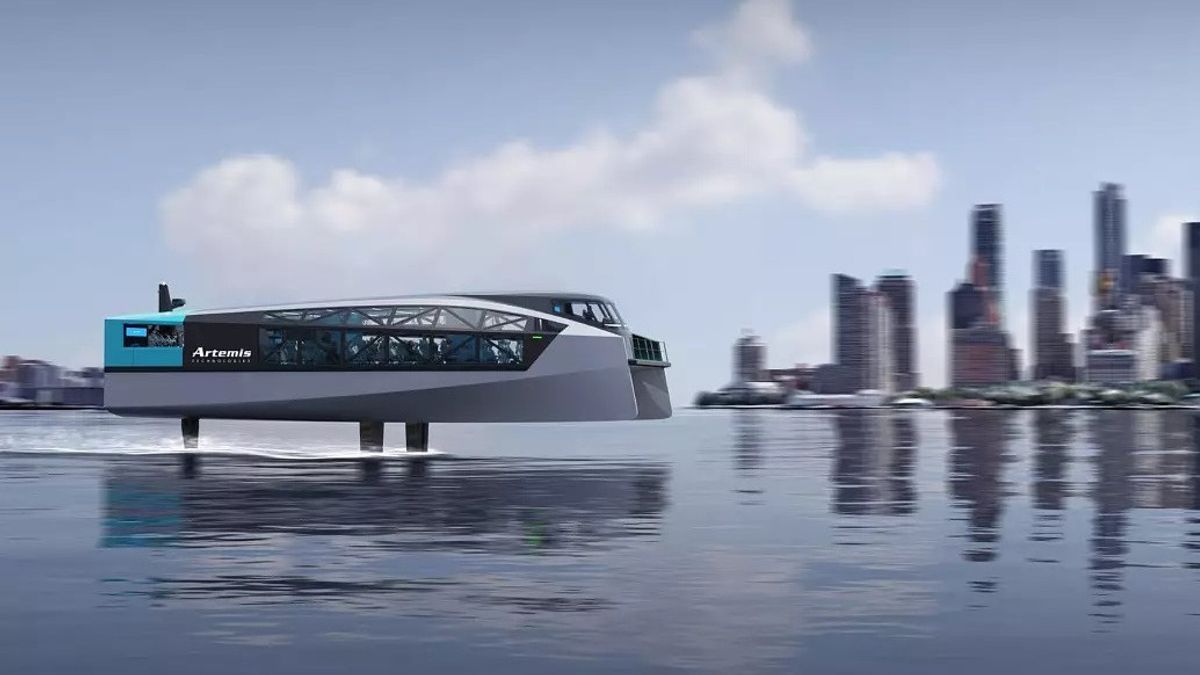JAKARTA - One of the most advanced electric passenger ferries in the world will soon connect Belfast and Bangor in Northern Ireland.
At a top speed of 69 kilometers per hour, the ship will 'fly over the water' with the underwater wing lifted like a plane taking off.
This ship can transport up to 150 passengers with a design that reduces the effects of motion sickness, dampening wave power that can damage coastlines.
Raising the hull above the water cuts off barriers, providing an estimated fuel cost savings of up to 85 percent compared to conventional diesel-powered ferries, designers said.
The 'unique' high-speed collision prevention system will also help prevent ships from hitting marine animals.
The maker said they would follow "the route that was changed from marine life, wildlife, debris and other in water".
The company behind 100 percent of the Artemis Technologies electric ferries was founded by Olympic sailing champion Dr Iain control OBE.
It's a spin-off from the Artemis Racing team competing in the American Cup, the world's oldest international sailing competition.
"Many water-based cities around the world are grappling with the challenges of population growth, congestion, and pollution", said feasibility, according to Euronews Sept. 28.
"EF-24 passengers can provide direct green transportation solutions that compete economically with roads and trains in places such as San Francisco, New York, Venice, Istanbul, Dubai and Singapore," he said.
The purpose of this ferry is to provide "cost-effective public transportation solutions", which can reduce "air pollution, congestion and noise," added tidbit.
This is just one of a series of zero-emissions vessels being developed by the company.
The new ship will connect Belfast to Bangor in Northern Ireland, taking 25 minutes to cross.
Artemis Technologies has partnered with Condor Ferries to run a pilot scheme that will begin in 2024.
The first ferry launches are expected to create 125 jobs and, as more services roll out over the next 10 years, it could increase to 1,000 workers.
This is not the first sustainable ferries to launch in the UK. The new wind-powered cataract between Dover and Boulogne-sur-Mer will launch in 2023.
The English, Chinese, Japanese, Arabic, and French versions are automatically generated by the AI. So there may still be inaccuracies in translating, please always see Indonesian as our main language. (system supported by DigitalSiber.id)








